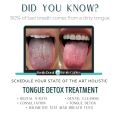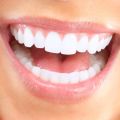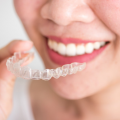7/14/2021
Tongue Detox Treatment in Coral Gables, Doral and Miami Florida

3/8/2021
At an average of only 3.3 inches for men and 3.1 inches for women, according to the University of Edinburgh, the tongue is one of the most important elements in a person's mouth. Yet, it is often the most neglected. Many people even forget to clean their tongues when brushing their teeth.
Interesting Facts About the Tongue
1. The tongue is made up of eight muscles and, contrary to popular belief, is not the strongest muscle in the body.
2. The color of a person's tongue tells a story.
- Tongue color can be an indication of serious health issues.
- Pink tongues are healthy while red tongues may be affected by allergies or infections.
- A blistered tongue might be an adverse reaction to certain allergy and blood pressure medications.
- White patches covering the tongue may be linked to fungal infections.
- Especially smooth tongues can be a sign of folic acid, iron, or vitamin B12 deficiency.
3. The small pink and white bumps on a person's tongue are not taste buds. They are called papillae and they house the taste buds, which cannot be seen by the naked eye.
4. There are thousands of taste buds all over the tongue.
5. Being able to roll the tongue is not always genetic.
It is important to take care of your tongue. Failing to practice proper tongue care inhibits your ability to speak or taste, and it can lead to bad breath.
White Tongue
What is White Tongue?
A white tongue occurs when the tongue is covered in a thick white coating or has white coating patches. A person may experience bad breath, a hairy tongue, and irritation. Usually, white tongue is harmless and temporary, but in rare cases it indicates a serious conditions.
What Are the Causes of White Tongue?
A white tongue is usually caused when bacteria, debris (like food and sugar), and dead cells get trapped between the papillae on the surface of your tongue. These string-like papillae then grow, swell and sometimes become inflamed.
A white tongue is usually caused when bacteria, debris (like food and sugar), and dead cells get trapped between the papillae on the surface of your tongue. These string-like papillae then grow, swell and sometimes become inflamed.
- Leukoplakia: A common condition caused by an overgrowth of cells in the lining of your mouth. These cells combine with the protein keratin (found in your hair) to form a white raised patch on your tongue.
- Oral Lichen Planus: A chronic inflammatory mouth condition caused by an immune system disorder and other microscopic threats.
- Geographic Tongue: Occurs while the skin on your tongue is regrowing. Parts of the upper layer of skin on your tongue shed too quickly, leaving tender red areas that often get infected.
- Oral Thrush: An infection in the mouth caused by too much yeast (fungus).
- Syphilis: Bacterial and sexually transmitted infection (STI) with many symptoms including a white tongue.
What Are the White Tongue Risk Factors?
- Diabetes.
- Being very young or very old. Oral thrush is most common in infants and toddlers.
- Taking antibiotics (they can cause a yeast infection inside your mouth).
- Eating a diet with limited fruits and vegetables (iron or vitamin B12).
- Eating a diet of mostly soft foods.
- Suffering a fever or a weak immune system.
- Wearing dentures or damaging your tongue with sharp objects.
- Practicing poor oral hygiene.
- Breathing through your mouth.
- Dehydration.
- Experiencing a dry mouth caused by a medical condition or by using medications (like muscle relaxers).
- Smoking or chewing tobacco.
- Drinking more than one alcoholic drink per day.
- Undergoing cancer treatments.
- Having hypothyroidism (an underactive thyroid gland causing poor metabolism).
How Can I Prevent White Tongue?
White Tongue can be unavoidable.
- Avoid alcohol and tobacco.
- Eat fruits and vegetables.
- Practicing proper oral hygiene.
- Drink lots of water.
- Schedule regular follow-up visits with your dentist to ensure white patches do not form, grow or become cancerous.
When Should I Call A Professional?
White Tongue is usually harmless and temporary. Depending on symptoms, people suffering with White Tongue often wait to see if it goes away on its own.
If your tongue hurts or itches, it should be looked at. Hurting or itching can indicate a developing health risk like an infection or oral cancer. In severe cases, untreated White Tongue can spread to other areas of the mouth and body.
Who Should I See If I (Or My Child) Have White Tongue?
You can get help from one or more healthcare professionals, including:
- Dentists clean tongues using a tongue scraper and can prescribe medications to treat White Tongue.
- General Practitioners can diagnose white tongue, prescribe medications and determine if your symptoms point to a more serious condition.
- Pharmacists can recommend products to treat White Tongue.
CARE AND TREATMENT
WAYS TO DETOX YOUR MOUTH
1. Probiotics
- Taking probiotic supplements and eating probiotic foods balances gut bacteria
iand treats health conditions related to candida.
2. Baking Soda
- Baking soda maintains proper pH levels in the mouth by neutralizing acids and exfoliates the tongue, removing any residue causing White Tongue.
3. Coconut Oil Pulling
- This oral detoxification is commonly used in Ayurvedic medicine.
- Ayurveda advises oil pulling purifies the entire system, as it holds that each section of the tongue is connected to different organs of the body.
- Swish a tablespoon of coconut oil in your mouth for 10–20 minutes. Spit out the oil, rinse your mouth with warm water and brush your teeth as normal.
4. Sea Salt
- Natural antibacterial properties in Sea Salt eliminate White Tongue causing bacteria and debris by gargling and swishing with water.
- The coarse texture of sea salt works as an exfoliant, removing the white coating from the tongue.
5. Aloe Vera Juice
- Antibacterial, anti-fungal anti-inflammatory properties in Aloe Vera heal infections, wounds, burns, and skin irritations.
- Aloe Very contains enzymes that remove dead cells and promote the regeneration of skin tissue.
- To remove the tongue's white coating, swish one tablespoon of aloe vera juice in your mouth two to three times a day until the coating has disappeared.
6. Colloidal Silver
- Known for its antibacterial and anti-fungal properties, Colloidal Silver is used for prompt action against irritating and highly infectious viruses and bacteria including pink eye, herpes, shingles, and HIV/AIDS.
- Swish a tablespoon of colloidal silver with equal parts water in your mouth for five minutes, twice daily.
7. Garlic
- Garlic’s antifungal activity makes it an effective natural treatment for White Tongue.
- Allicin, one of the active compounds in garlic, demonstrates anti-candidal effects and may be as effective as fluconazole, a drug that’s used to treat fungal infections.
8. Oregano Oil
- Oregano Oil has antiviral, antibacterial, anti-fungal, anti-parasitic, antioxidant, and anti-inflammatory properties.
- It serves as a natural antibiotic, white tongue caused by conventional antibiotic drugs can be avoided.
9. Pau D’arco Tea
- To treat oral thrush or white tongue caused by fungal overgrowth, make pau d’arco tea.
- Combine two cups of bark and four cups of boiling water.
- Boil for 20 minutes.
- Remove from heat and let cool for at least an hour.
- Strain and enjoy small portions throughout the day.
10. Tongue Scraping and Proper Oral Hygiene
- Brush teeth and gums at least twice each day, including after meals.
- Tongue scraping rids White Tongue and improves breath.
Schedule Your State Of The Art Holistic Tongue Detox Treatment | iSmile by Dr. Sonia Olivares
Trust Florida’s Leader in Dental and Oral Care
iSmile by Dr. Sonia Olivares provides state of the art, holistic White Tongue detox treatments to Doral and Coral Gables, Florida. Dr. Sonia Olivares has extensive experience and expertise in oral health maintenance and uniquely treats White Tongue with sensitivity and success.
- Digital Xray
- Dental Consultation
- Dental Cleaning
- Tongue Detox
- Ozone Therapy Treatment
- Latest Dental Technology Utilization
- State-of-the-Art Service and Experience
For more information, call iSmile of Dr. Sonia Olivares at 305-620-8272/305-396-1026 or connect with us online today.
https://www.drsoniaolivares.net/general-dentistry/bad-breath-treatment/
Other articles and publications:
Learn more about oral issues and their Diagnose. Call iSmile of Coral Gables at 305-620-8272 or Doral, FL at 305-396-1026 for a free consultation.
Learn the health risks of untreated gum disease. Call iSmile Periodontics in Coral Gables and Doral, FL at 305-620-8272 or 305-396-1026 for an appointment
11/11/2020
Learn How Does Dental Insurance Work. Call iSmile of Coral Gables at 305-620-8272 or Doral, FL dental office at 305-396-1026 today to use your dental insurance
2/19/2021
Learn the advantages of Composite & Porcelain Fillings. Call iSmile of Coral Gables at 305-620-8272 or Doral, FL dental office at 305-396-1026 today.
6/23/2021
Learn the causes, symptoms, and treatment of tooth infection. Call iSmile of Coral Gables at 305-620-8272 or Doral, FL at 305-396-1026 for a free consultation.
6/21/2021
Invisalign is a discreet option for adults and older teens that you can find from your dentist in Doral and Coral Gables.
10/7/2020
Articles and publications of other companies:
Great-looking teeth don’t happen overnight. Take charge of your health if you want to keep your chompers looking classy. That’s why we’ve created a comprehensive list of 10 tips for a healthier smile.
4/14/2021








